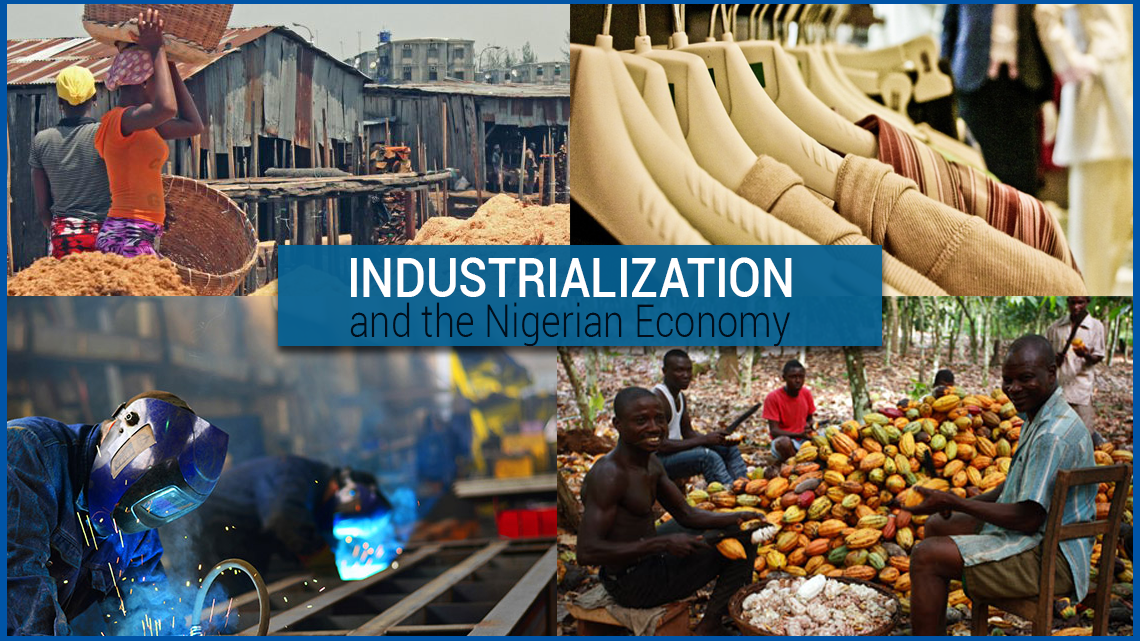There are no products in your shopping cart.
| 0 Items | £0.00 |


NIGERIA'S economy recorded a minute growth in gross domestic product (GDP) during the fourth quarter of 2020 witnessing a 0.11% rise in year-on-year wealth to N43.5trn ($113.45bn) .
Over the last year, the Nigerian economy has been hit hard by the economic fallout of the coronavirus pandemic and as a result has suffered negative growth for three successive quarters. In a sign that Nigeria may have overcome the worst of the pandemic, during which time she had to borrow heavily to fund the 2020 and 2021 budgets, the economy is back in the black for about a year.
During the first three quarters of 2020, Nigeria GDP saw a meagre GDP growth of 1.87% and contractions of -6.1% and -3.6% respectively. For the whole of 2020, the economy contracted by -1.92% as weak crude oil sales severely hurt government revenue and the global shutdown limited foreign direct investment.
This return to positive GDP growth was driven by the non-oil sector which recorded a 1.69% growth in the fourth quarter of 2020, compared with a 2.51% contraction recorded in the third quarter. Nigeria's National Bureau of Statistics (NBS) noted that the positive growth reflected the gradual return of economic activities in the country, following the easing of restricted movements and limited local and international commercial activities in the preceding quarters.
Its report read: “Nigeria’s GDP grew by 0.11% year-on-year in real terms in the fourth quarter of 2020, representing the first positive quarterly growth in the last three quarters. Though weak, the positive growth reflects the gradual return of economic activities following the easing of restricted movements and limited local and international commercial activities in the preceding quarters.
“As a result, while the fourth growth rate was lower than the growth rate recorded the previous year by 2.44 percentage points, it was higher by 3.74 percentage points compared with the third quarter of 2020. On a quarter on quarter basis, real GDP growth was 9.7%, indicating a second positive consecutive quarter-on-quarter real growth rate in 2020 after two negative quarters.
“Overall, in 2020, the annual growth of real GDP was estimated at –1.92%, a decline of 4.2 percentage points when compared with the 2.27% recorded in 2019. In the quarter under review, aggregate GDP stood at N43.5trn in nominal terms.
"This performance is higher when compared with the fourth quarter of 2019 which recorded a GDP aggregate of N39.5trn, representing a year-on-year nominal growth rate of 10.07%. This growth rate was lower relative to the growth recorded in the fourth quarter of 2019 by –2.26 percent points but higher than the preceding quarter by 6.7 percentage points with growth rates recorded at 12.3% and 3.4% respectively.”
Nigeria's oil sector contributed 5.9% to total real GDP in the fourth quarter of 2020, down from the corresponding period of 2019 and the preceding quarter, where it contributed 7.3% and 8.7% respectively. For 2020 as a whole, the non-oil sector contributed 91.8% to real GDP, higher than the 91.2% recorded in 2019.
According to the Lagos Chamber of Commerce and Industry (LCCI), the nation’s economic recovery seem be faster than expected but it warned that the pace of recovery is expected to be subdued within the region of 1% and 2%. Dr Muda Yusuf, the LCCI director-general said that accelerating the pace of economic recovery will require fiscal and monetary authorities to be well coordinated to promote growth-enhancing and confidence-building policies that would encourage more private capital inflows into the economy.
He added: “The current downturn is expected to be short-lived going forward. There are indications that recovery might be faster than expected, however, the pace of recovery is expected to be subdued within the region of one and two percent.
“The country’s recovery prospects in year 2021 will be dependent on five key factors including effective management of the pandemic locally and globally, widespread vaccine rollout, the direction of the global oil market, fiscal and monetary policy direction and ease of doing business reforms. Investment-led growth strategy is critical for inclusive and sustainable economic growth as strong commitment to key reforms will not only boost output recovery but will also put the nation on a path of macroeconomic stability."